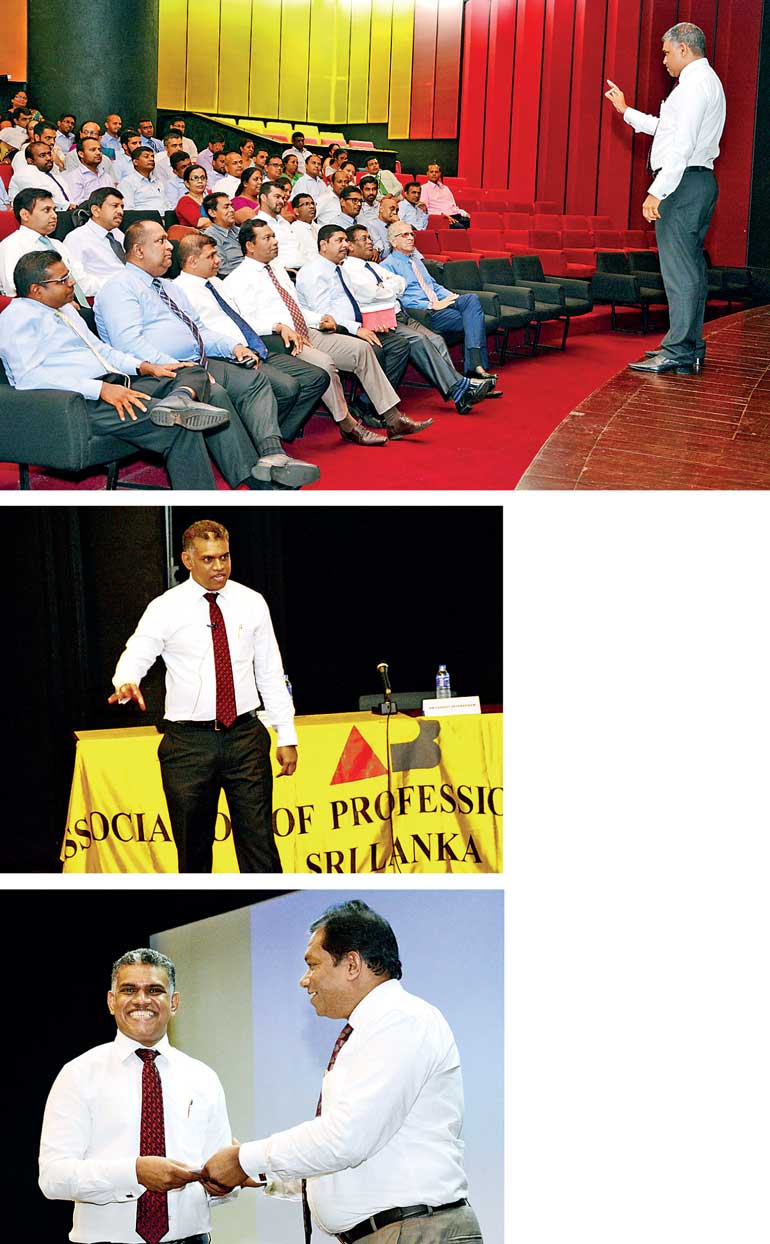Monday Feb 16, 2026
Monday Feb 16, 2026
Tuesday, 22 August 2017 00:04 - - {{hitsCtrl.values.hits}}
The Association of Professional Bankers of Sri Lanka organised yet another lecture, in the series of Continuous Professional Development lectures scheduled by APB, with an address by Sanjeev Jayaratnam, founder of the ‘Revelations’ all male choir group and a World Champion Choral Conductor.
Sanjeev identifies himself as a Chief Transformational Wizard, Lecturer, Singer, and an Actor.
In delivering a lecture titled ‘Managing the in-betweens’ Sanjeev emphasised on a key area a typical corporate employee tends to neglect, but can be used brilliantly in one’s day-to-day activities to bring great results.
Getting the audience to engage in the lecture Sanjeev elaborated on the different types of personalities, one would meet in office. Expounding through various examples that are available in day-to-day life, he made the audience aware, the single factor that would be in one’s control is one’s mood. Explaining in very simple terms he clarified the biology of the brain, including the part of the brain called the Amygdala in determining one’s reactions to the external environment. Then he explained how the mirror-neuron reaction would make a bad mood contagious and further said if the team leader’s mood is bad, the effect would spread throughout the office.
Explaining on the research done by Daniel Goleman (whose doctrine of emotional intelligence has acclaimed world-wide acceptance), Richard Boyatzis and Annie McKee he stated that a leader’s mood may be the biggest factor in bottom-line performance.
“A leader’s emotional style, their mood and behaviours, create a certain culture or work environment. Angryboss creates an organisation filled with unenthusiastic underachievers who tend to overlook opportunities, and a leader must make sure not only that they are optimistic, genuine and maintain a high-energy mood, but that it shows through their actions and is in should be turn felt by their employees,” said Sanjeev.
Explaining the practical ways of managing ones emotions, Sanjeev described how leaders can learn habits and practices to improve their emotional output.
Then he went on to explain how the posture has a reverse effect on one’s emotion. Quoting from the research he said that the open posture help one to create a better mood. He showed the audience how to reset their emotion through a mindfulness breathing exercise termed ‘Sixteen seconds of bliss’.
Elaborating through Sanjeev’s own experiences in training choir groups, he demonstrated as to how ordinary people can be made to deliver extraordinary results through the effective management of the Emotional Intelligence.
He requested the audience to start their days with thinking about one thing that made them happy yesterday and to think of an opportunity that is available today, and requested the audience to inculcate the habit of offering genuine compliments and genuine appreciation and stated that these practices would work like a switch that will reset ones mood to happiness.
A hearty question and answer session was followed by the lecture. The questions by the audience were answered by ever smiling Sanjeev.
